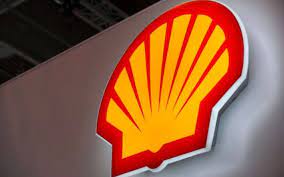
06 May 2016, Houston, Texas — The International Energy Information Administration (IEA) has estimated that a yearly $630 billion worldwide upstream oil and gas investment is required to compensate for declining production at existing fields.
This is coming as the British Petroleum (BP) said yesterday, at the ongoing Offshore Technology Conference (OTC) in Houston, Texas, U.S.A, that it has reduced its $20 billion ‘mad dog’ phase two project in the Gulf of Mexico to $10 billion.
IEA however, warned oil and gas companies across the globe to be wary of cuts in upstream oil and gas investment, as they pose threats to energy security and could lead to greater price volatility.
Specifically, The Guardian gathered the Nigerian government reduced the capital budget for joint venture oil operations by over 40 percent this year to $8.1 billion due to the slump in crude oil prices.
Already, a total of 68 projects with capital investment worth of about $380 billion, as well as 27 billion barrels of oil equivalent of commercial reserves have been deferred in 2015 by the global oil and gas industry as a result of the slump in the price of crude oil.
BP’s Chief Executive Officer for Upstream, Bernard Looney, said at a session yesterday, that the company has to bring down the value of the project with expected returns despite a lower oil price.
He said: “In oil and gas, specifically the upstream, costs as we know tend to follow oil price and in general have trended upward over time.
We need to change this.”
The U.S. shale revolution, Looney said, is part of the way forward–a fundamentally different mindset that the industry should adopt.
“This combination of innovation and continuous improvement is the driving force for the future.
“It’s how we will improve the productivity of our oil sector and put costs on a downward curve,” he added.
Dwelling on the long term effects of investment cuts, which has spread through across many oil and gas countries, Executive Director, IEA, Dr. Fatih Birol, said that world upstream oil and gas investment continues to fall, raising the prospect of increasing reliance on the Middle East in the future.
He said that a yearly $630 billion in worldwide upstream oil and gas investment is required just to compensate for declining production at existing fields.
This, he said, will simply keep future output flat, at today’s levels. “Investment reductions of the magnitude that we estimate for 2016 and 2017 will reduce spending to a level below what we need to maintain supply. Of course, this will create an environment where prices are more likely, but the longer the downturn persists, the more difficult it will be for the industry to respond rapidly”.
Biro said that effects of low prices have also had been felt in the producer countries. “The ability of oil exporting nations to balance budgets and invest in future supply has, in almost all cases, been severely constrained. The impact varies country by country, depending on the importance of oil and gas revenues in the economy and whether or not they have ‘rainy day’ funds or reserves to draw down. For the OPEC economies, their revenues from oil exports fell from a recent peak in 2012 of $1.2 trillion to $500 billion in 2015”, he added.
*Roseline Okere – Guardian



